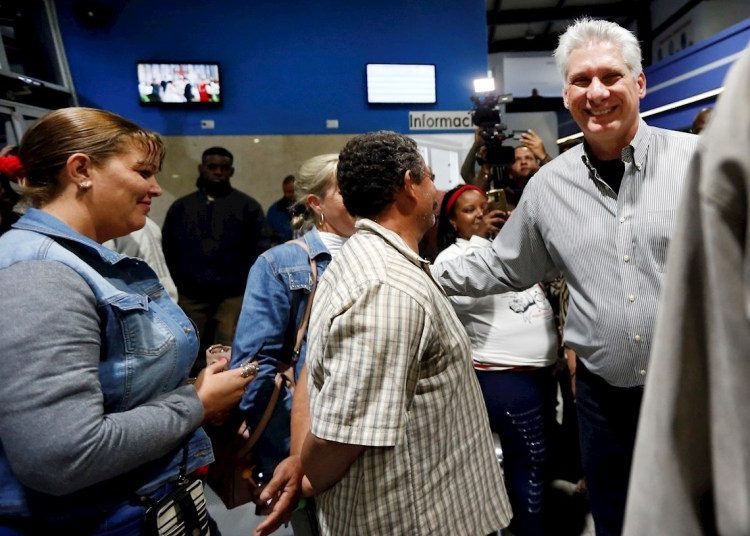The monetary and exchange rate unification prepared by the Cuban government will help to “stabilize” the island’s economic conditions and will make it possible “to do many more things,” said the country’s president, Miguel Díaz-Canel.
That “complex” process, for which there is still no date announced, “is one of the things that will help stabilize conditions a bit and starting then you can do many more things,” said the president in statements to the foreign media, among them EFE, during a visit to the central province of Sancti Spíritus.
The elimination of two currencies has become the Cuban government’s priority in recent months when faced by the crisis that is affecting the country, caused by the intensification of the U.S. embargo with new sanctions and the economic collapse of Venezuela, the island’s main ally, among other factors.
In recent months the authorities have taken experimental steps but the exact date on which the CUC will be out of circulation is unknown, which has caused effects such as its devaluation against the dollar in the informal market.
“There are many things we are organizing and of course the process in which we have been advancing and that is very complex because of the amount of things that accumulated is that of the monetary and exchange rate unification,” said Díaz-Canel.
The President of the Republic of #Cuba Miguel Díaz-Canel Bermúdez gave statements to the international press accredited on the island, during the #governmental visit he heads to the province of #Sancti Spíritus. During his address he highlighted the current situation of the country and the context the Caribbean region is living. In addition, he reported on the actions carried out by his government with the aim of strengthening the economy in the largest of the Caribbean islands. We fully share his statements on the Presidencia Cuba site.
Posted by Canal Caribe on Friday, January 24, 2020
“Unblocking” the economy
One of the president’s recurring expressions in his addresses since he came to power in April 2018 has been that of “unblocking the economy,” for which he continually asks citizens in his work tours throughout all the Cuban provinces to contribute ideas and help identify the factors that prevent progress.
The Cuban government intends to “work in an exercise of collective thought and try to have a whole bank of situations in which there are obstacles, in which there may be bureaucracy, in which there are decisions that we have to update, by then, with that bank of problems, to be able to start looking for the paths through which we can start eliminating, unblocking, loosening those deadlocks,” he explained.
Among the groups from which the president has requested collaboration are economists, many of whom have made coincidental public recommendations on the steps that the country should take to improve its situation, measures that place special emphasis on giving the private sector a greater margin of maneuver, and which so far have not materialized.
“Work is underway regarding all these things,” said the president, although he said that all economic processes are connected to each other, which makes it necessary to analyze each measure “because the decision made in one area affects the other.”
In addition, he considered that “when some economists talk about unblocking and unleashing the productive forces in the country they only think about the private sector,” while the government premise is that the main economic actor is “the state business sector and as a complement to that state economy, the private sector.”
“We are not denying the private sector, but it is a complement to the state economy, and really in what we have been implementing, we have given the private sector more freedom than the state one,” he insisted.
Therefore, he continued, the government is now focused on “unleashing” the state sector “without stopping the private sector,” as well as “finding the appropriate dimensions that the State must have and those the private and cooperative must have, and the right relations” between them.
“When looking at the list of policies that have been approved, the country has changed a lot in ten years, in the last fifteen years, and will continue to change, and will continue to change for the better,” the president predicted.
On the proposals of the economists to analyze the economic models of China and Vietnam―countries of communist ideology but liberalized economies―to adapt them to Cuba, Díaz-Canel commented that the experiences of those countries have been studied, but recalled that none of them has been under an embargo for six decades.
“And not blockaded by anyone: blockaded by the U.S. government, blockaded by the world’s leading power,” he underlined.










